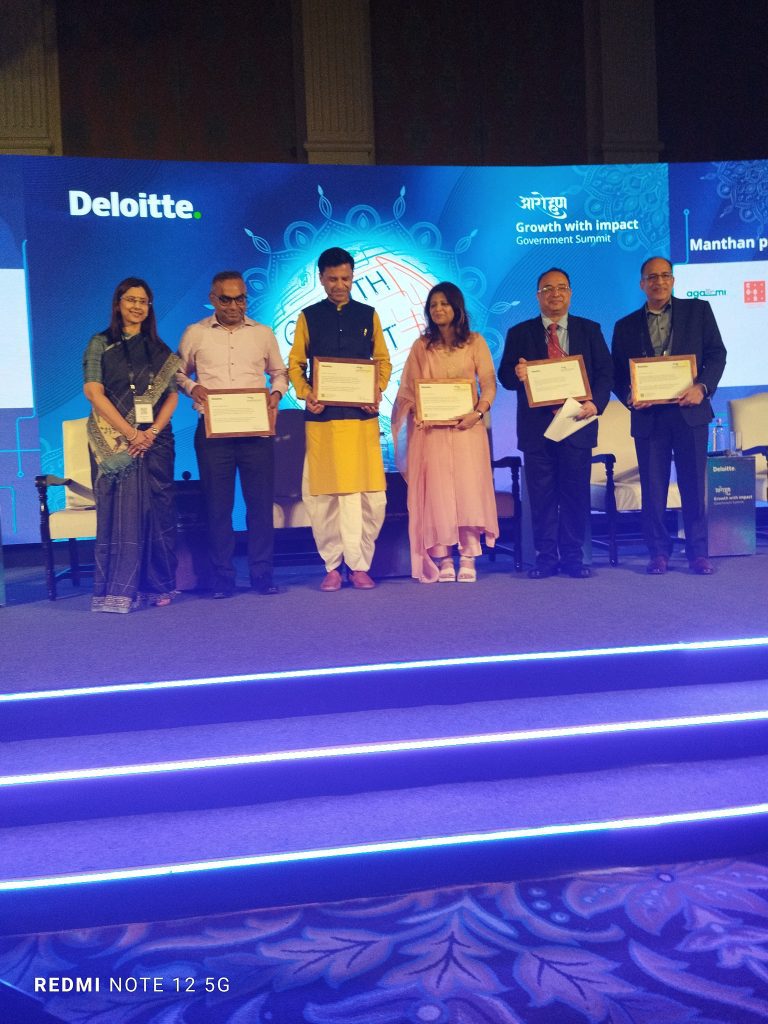New Delhi, September 19, 2024 : Deloitte India hosted the second edition of its Government Summit, Ārohaṇa (आरोहण): Growth with Impact today. The event brought together notable figures, including Union Minister Shri Nitin Gadkari, Chief Economic Advisor Shri V. Anantha Nageswaran, and Shri Jayant Chaudhary, Minister of State for Skill Development and Education, along with senior government officials, industry leaders, and Deloitte representatives. Key discussions revolved around India’s path to becoming a digitally empowered economy by 2047, focusing on technology, sustainability, and digital public infrastructure (DPI) as key enablers of the Viksit Bharat@2047 vision.
India is poised for global leadership amid significant transformations from technologies like AI and challenges such as climate change. This summit plays a crucial role in this context by facilitating discussions on digital transformation, infrastructure, security, and sustainability. The summit connects government, industry, think tanks, and startups to drive innovative solutions and enhance India’s global leadership. Leveraging Deloitte’s expertise, the summit aims to shape future strategies and reinforce India’s path to a sustainable and prosperous future.
Key Highlights/Insights:
Keynote Address by Nitin Gadkari:
Shri Gadkari outlined the government’s ambitious plan to cut India’s logistics costs to single digits within five years through extensive highway and expressway development.
a. He highlighted the government’s focus on creating world-class infrastructure to boost
economic growth.
b. Additionally, he emphasized India’s goal of becoming a leading global automobile hub,
stressing the importance of increasing exports and reducing imports to enhance the country’s macroeconomic stability.
c. Shri Gadkari also discussed the government’s commitment to improving rural connectivity and infrastructure to support regional development and economic inclusion.
DPI Playbook Launch: Deloitte launched its AI-powered “Digital Public Infrastructure (DPI) Playbook,” providing a roadmap for using AI in governance. The playbook focuses on scalability, interoperability, and inclusivity, supporting India’s digital goals such as ONDC and UPI.
Adding further perspective, NSN Murty, Partner and Government and Public Services Consulting Leader at Deloitte India, said, “DPI is already reshaping governance and public service delivery in India. Integrating AI into this infrastructure will only accelerate this transformation, creating smarter cities and more resilient communities. At Ārohaṇa, we are focused on how AI and DPI can revolutionize key areas such as traffic management, disaster recovery, and education. However, as we embrace an AI-driven future, addressing challenges like biases, privacy, and transparency is critical to ensure these systems serve everyone equitably. Through DPI, we are building a futureready infrastructure that not only drives efficiency but also aligns with India’s Viksit Bharat@2047 vision, fostering sustainable and inclusive growth for all.”
Other distinguished participants included Smt. Alka Upadhyaya, Secretary of Animal Husbandry & Dairying; Dr. Pramod Varma, Former Chief Architect of Aadhaar, UPI & India Stack; Shri Shashank Mani, Member of Parliament; Smt. Sujata Chaturvedi, Secretary of Sports; Smt. Aradhana Patnaik, Additional Secretary of Health & Family Welfare; and Shri Thummala Nageswara Rao, Minister for Agriculture, Cooperation, and Textiles, State Government of Telangana.
About the Government Summit “Āarohaṇa (आरोहण): Growth with Impact” The Government Summit “Āarohaṇa (आरोहण): Growth with Impact”, is Deloitte’s flagship initiative that aims to establish India as a formidable force in the digital and economic landscape. An extension of Coalesce, the summit offers a platform for sharing industry insights and acts as a catalyst for driving technology-driven dialogues that can
revolutionise the sector in terms of improved service delivery, governance, and policy-making
